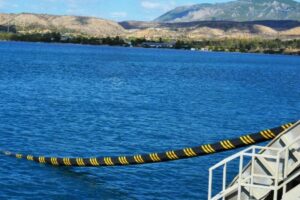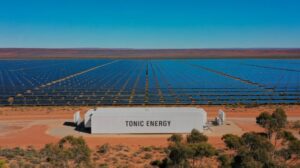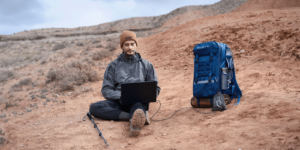Disadvantages of Air Pollution


Air pollution consists mainly of toxic chemicals and other harmful particles and is considered a major problem on the planet because it affects both our health and the environment.
This type of pollution is created in a small percent by natural causes such as volcanic eruptions, wildfires, dust storms and allergens, and in larger volumes by human activities such as burning fossil fuels for heating, running our vehicles, and by the industrial sector.
We don’t have control over the air pollution caused by natural sources, however, we can control the main sources of air pollution produced by mankind.
It is important to control the level of air pollution produced on the planet because only this way we can reduce the severe health conditions and environmental problems affecting us here on Earth.
What Are the Main Disadvantages of Air Pollution?
Being a phenomenon that mainly affects nature and our health, air pollution produces a large number of disadvantages for mankind.
1. Rises the Global Temperature
When we burn fossil fuels produced from decomposed plants and organisms for heating, energy production, or in different industrial processes, we are releasing into the atmosphere a large volume of toxic gases which include carbon dioxide (CO2), nitrous oxide (N2O), carbon monoxide (CO), sulfur dioxide (SO2), water vapor and other toxic or greenhouse gases (GHG).
Greenhouse gases trap heat coming from the Sun in the Earth’s atmosphere resulting in a rise in global temperature.
2. Causes Global Warming and Climate Change
Provided by Bridger Photonics – gas mapping lidar
Greenhouse gases released into the atmosphere by human activities, including: carbon dioxide (CO2), methane (CH4), nitrous oxide (N2O) and greenhouse gases produced by the industrial sector like hydrofluorocarbons (HFCs), perfluorocarbons (PFCs), sulfur hexafluoride (SF6), and nitrogen trifluoride (NF3), have slowly created a blanket of gases that covers our atmosphere and blocks the heat produced by the Sun.
This has lead to global warming (increased global temperature) and in time to changed weather patterns (climate change). The change of the climate, affects all living beings (people and animals), and also the plants (crops, veggies, fruit trees, etc.).
3. Can Produce Severe Diseases
Burning fossil fuels for energy production, heating, industrial activities or to run our vehicles with internal combustion engines, has produced a large volume of toxic and greenhouse gases that have set a chain of events.
By producing more and more greenhouse and toxic gases due to the increased demand for energy, in many industrial areas of the planet smog is produced. Smog is a type of air pollution that reduces visibility and makes the air hard to breathe.
Smog engulfs the surrounding in a brown and gray haze, which is pretty common in a few industrial areas in the U.S., India and China.
Air pollution can make people very sick because apart, breathing issues (asthma), the toxic gases produced when burning coal, oil and natural gas, can produce heart disease, respiratory infections, lung cancer, birth defects, eye irritation, etc.
According to the World Health Organization (WHO), nearly 7 million people die every year of diseases caused by air pollution.
4. Reduces Air Quality in Major Cities
People living in crowded areas (large cities) are very affected by air pollution. A large number of people will always mean a large number of vehicles. Because today we are still using vehicles with internal combustion engine on a large scale, the level of air pollution produced by these cars is extremely high, and this affects both the population living in those cities and the environment.

Vehicles with internal combustion engine are responsible for air pollution in cities, image source: pixabay.com
Even without the presence of industry in the area, a city can severely suffer due to the large number of vehicles on its roads.
This is the reason why in large cities, people tend to move to peripheral areas of the city because the number of people and traffic is way more reduced there, and this can only mean a cleaner and more quiet place.
5. Destroys the Environment and Wildlife
Air pollution affects both plants and animals.
How does air pollution affect plants?
Air pollution can affect the growth of the plants located in areas where this type of pollution is constantly produced. Stomata are tiny pores used by plants that open and close to unable gas exchange. Plants living in polluted areas can have the stomata closed, which will slow down the rate of photosynthesis.
The growth of the plant is retarded and the leaves will fall off or become yellow.
How does air pollution affect animals?
Exactly like in the case of people, air pollution can affect the respiratory system of the animals and can cause eye irritation.
Animals living in polluted areas will be less developed compared to the animals living in areas with clean air.
How to Reduce Air Pollution on the Planet?
In order to protect the environment and reduce the impact of air pollution on our health, we have to stop using fossil fuels.
Well, this is not possible yet, because the most important sources of power on the planet are represented mainly by fossil fuels.
Giving the fact that we need energy for our daily activities (we rely very much on technology), the only thing to do is to slowly replace the dirty fossil fuels with energy sources that are renewable and clean.
This way we can conserve the natural resources of the planet, we can reduce our dependence on fossil fuels (limited resources), and we can make our impact on the environment less harmful.
To reduce air pollution in cities, we have to reduce the number of vehicles using engines with internal combustion.
This is again not entirely possible yet because electric vehicles are quite expensive, the charging network is not developed enough, and the technology used by the batteries installed in these vehicles must evolve.
Electric vehicles still rely on Li-ion batteries, even if this technology was invented more than four decades ago and was first commercialized by Sony Co in 1991.
Conclusion
If we can’t replace our conventional vehicle with an electric one, and we can’t choose what energy sources are used by our energy supplier, we can at least be more efficient.
Saving power while sitting home or at work, will reduce the power demand on the grid, will make energy producers generate less power (consume less fossil fuels), and will also lower your energy bills, which will keep the money in your pocket.







